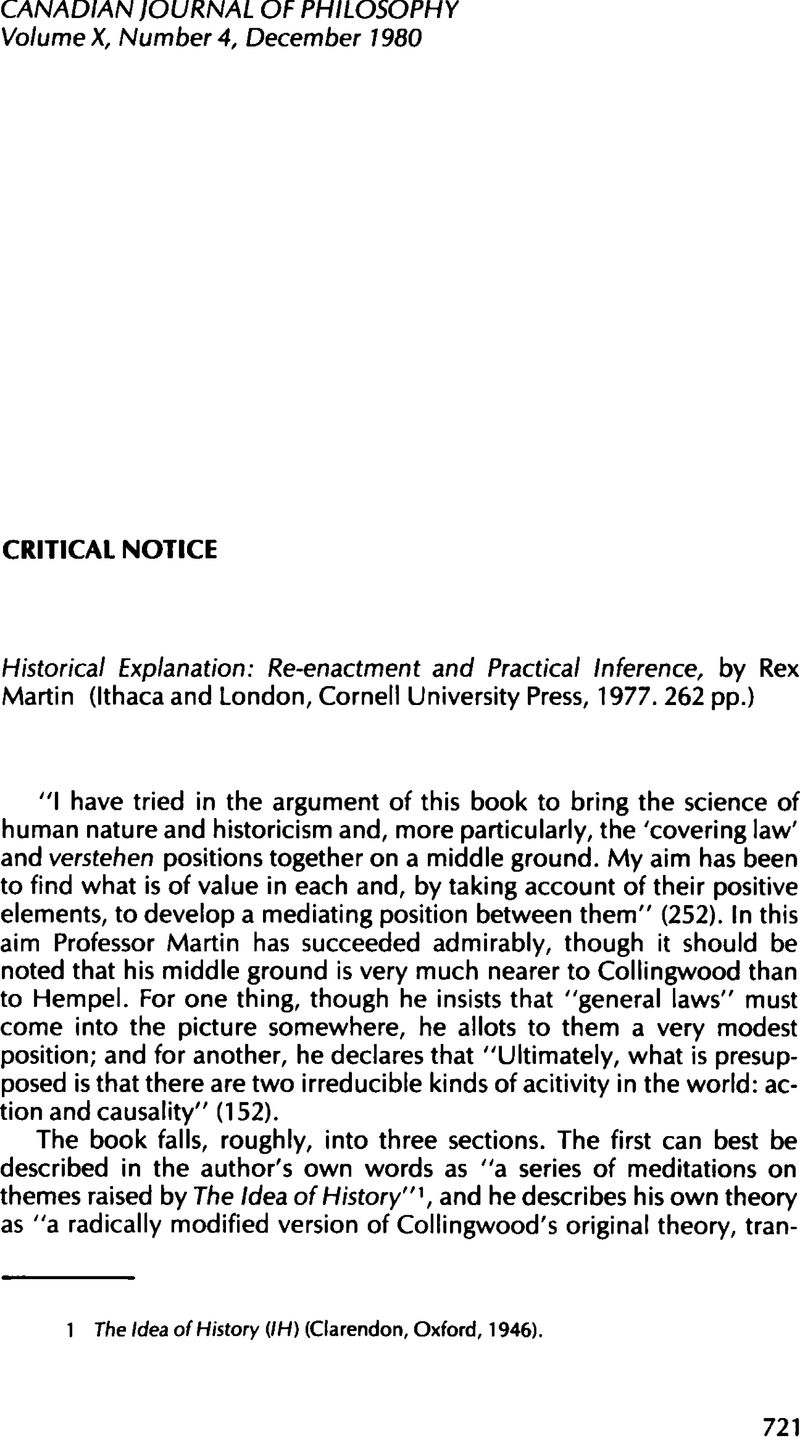No CrossRef data available.
Article contents
Historical Explanation: Re-enactment and Practical Inference, by Rex Martin (Ithaca and London, Cornell University Press, 1977. 262 pp.)
Review products
Published online by Cambridge University Press: 01 January 2020
Abstract

- Type
- Critical Notice
- Information
- Copyright
- Copyright © The Authors 1980
References
1 The Idea of History (JH) (Clarendon, Oxford, 1946).
2 “The Function of General Laws in History”, Journal of Philosophy, 39 (1942), pp. 35-48.
3 “The Verification of Historical Theses” in The Philosophical Quarterly, 6 (1956), p. 203.
4 Roman Britain (Clarendon, Oxford, 1934), pp. 32-3, cf: An Autobiography (Oxford U. P., London, 1939), p. 131.
5 An Autobiography, p. 70.
6 Argonauts of the Western Pacific (Routledge, London, 1932), p. 25.
7 Gershoy, Leo in Bertrand Barère: A Reluctant Terrorist (Princeton U. P., Princeton, 1962)Google Scholar gives an account of Barère's conduct in July 1793 which contradicts Macaulay's. The case is well discussed by Donagan in The Monist, 53 (1969), pp. 58-89. In this case Donagan is able to show that Gershoy scores a decisive victory over Macaulay, but the problem of choosing between alternative ex– planations cannot always be so easily solved.
8 The extremely difficult problem which Martin poses for himself in the “Booth” example and his objections to Donagan's view that R’ is analytic turn precisely on this point. There must be no question of Booth changing his mind at the last moment, no locus poenitentiae, no possibility of weakness of will or sheer madness, and so on. If there were any doubt at all about the truth of (1)-(7) in Booth's case, the example would lose its force. And if Booth had in fact done something irrelevant, it is always open to us to say that one of the experts who vouch for (1)-(7) must have been wrong, thus making R’ analytic.
9 Roman Britain, (Penguin, Harmondsworth, 1978), p. 32.
10 The Idea of History, p. 256.
11 Roman Britain, p. 9.


